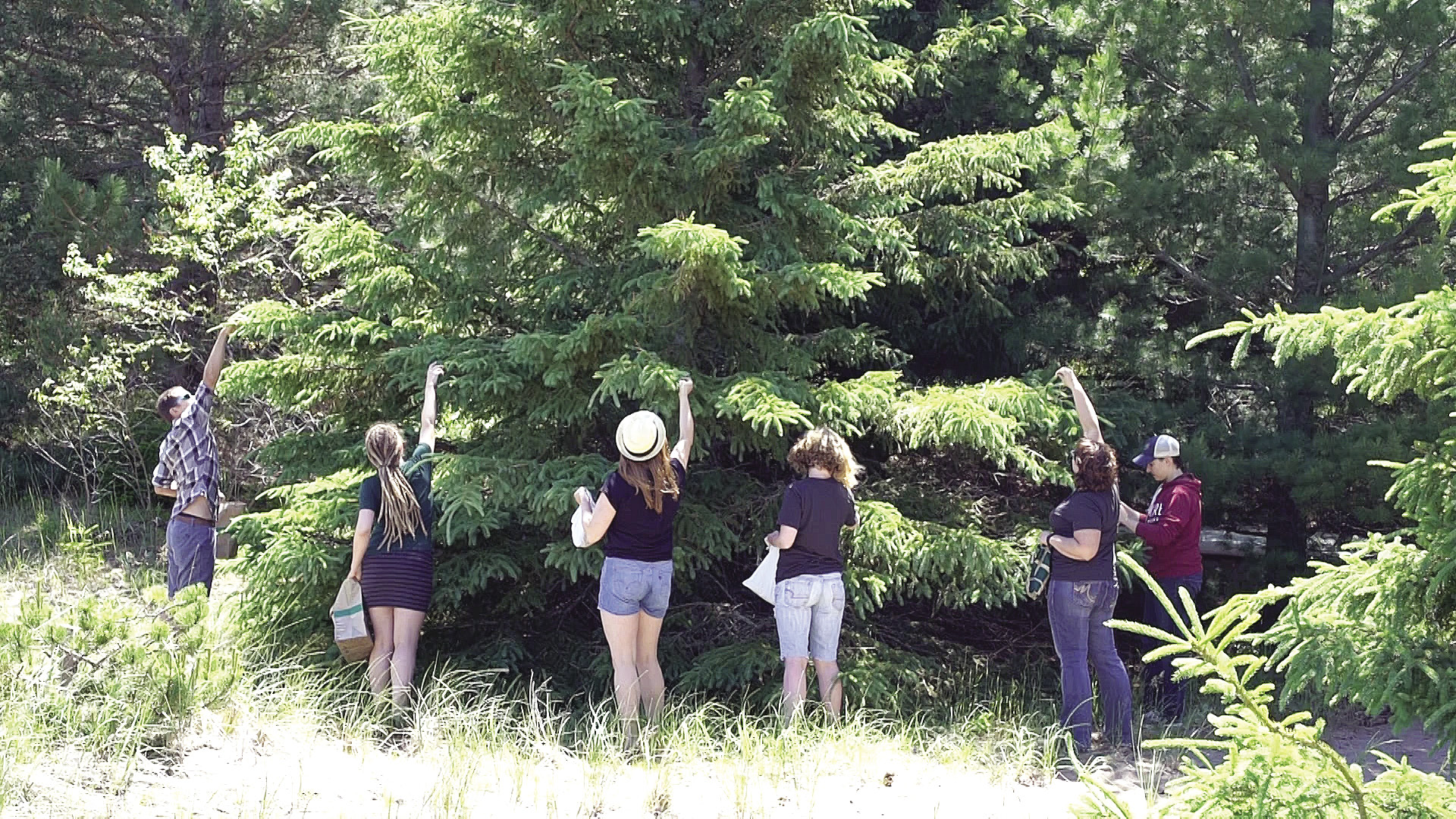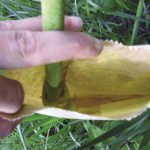Foraging for spruce tips. | VIKRE DISTILLERY
Duluth—Duluth’s first craft distillery made a big splash last year. Vikre Distillery was founded in 2012 and started selling gin and aquavit in 2014. It only took two years for USA Today to choose them as the 2016 Best Craft Specialty Spirits Distillery in the Country—Best in the Nation in under five years. That probably helps Emily and Joel Vikre (pronounced “VEE-kruh”) feel good about switching to this career from their previous desk jobs. They produce aquavit, vodka and whiskey, but their three Boreal Gins (Juniper, Spruce and Cedar) were among the first spirits they sold.
When you think of gin, you think of botanicals. Many Vikre Distillery ingredients are foraged locally. Springtime means rhubarb. Rhubarb is used in the Juniper Gin recipe.
“We get this right from our backyard. It’s almost a rhubarb farm,” said Emily.
Spruce tips are used in the Spruce variety, of course.
“This only happens during the spring. We rely on staff and friends to get together. We go to private land. Yards of friends who have a lot of spruce trees,” said Emily.
Fall is when sumac berries are foraged and then dried to use all year in the Cedar Gin.
They use juniper berries in all three gin varieties. But this ingredient is a lesson on the limits of foraging.
“We forage for some of this locally, but it’s not enough. And there’s variability in flavor from one area of juniper berries to the next. So, we use a mix of some of our foraged juniper berries with juniper berries that we purchase in order to get more consistent flavors,” said Emily.
She said that other distillers have found the same limitations when it comes to this staple of gin production.
Some other items seem like they’d be good choices to forage, but aren’t, like coriander, for example. Coriander is cilantro that has gone to seed. Vikre uses a lot of coriander so they need volume. Emily said they tried to harvest this themselves. She also said that, without the right tools to harvest the seed, it’s the “worst experience ever.” So they purchase this ingredient to get the amount they need.
Foraging limits how much you can harvest, the consistency of the ingredients, and may increase the labor involved. There are also mental limits.
“I’m a cautious person. We only forage if we are 100 percent sure of what it is, that it’s edible, that we have people who can recognize what they’re foraging for and in places where we have permission. Not being 100 percent certain freaks me out,” said Emily. “We want to make sure we don’t hurt wild populations.”
Foraged items are an important part of the whole product line. Sugarbush Whiskey includes maple syrup harvested by close family-friends. Many other syrups and infusions used in their cocktails include foraged ingredients like lilac, for example.
Emily doesn’t see foraging as a fad.
“We don’t forage for its own sake,” she said. “We don’t forage because, ‘foraging is so hot right now.’ Foraging is just part of getting food. For example, picking berries is just one of many different ways of getting food. It’s more about the flavors I want.”
Sometimes they buy spices (coriander), sometimes they harvest fruit from farms (black currants from Bayfield, Wisc.) and sometimes they forage. Judging by their acclaim at the national level, they’re foraging for the right things, in the right amount, in the right way.
To learn more about Vikre Distillery or find out where you can raise a glass of their product, visit: vikredistillery.com.




